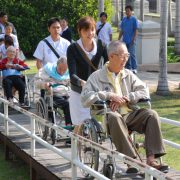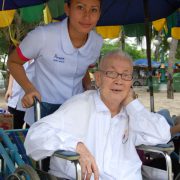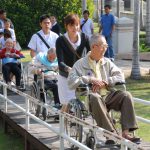Also known as skilled nursing facilities, nursing homes provide care for people whose medical needs require the attention of licensed nurses.
What to Look for…How to Choose a Facility
Choosing a nursing home for a family member is one of the most difficult decisions in life. While every potential resident’s situation is unique, there are some common criteria that can be used as a guide to selecting a nursing home that best suits the needs of a resident.
The following information highlights some of the primary pre-placement issues to consider when seeking a nursing home.
Location
It is important to choose a facility that is close and convenient to the person(s) who will be visiting the resident most often. Residents who are visited often may recover more quickly, may be happier and healthier for the love and attention received.
Special Needs
Special care needs of the resident should always be considered: whether the resident will require a ventilator, rehabilitation, psychiatric care or extra supervision due to wandering or combative behavior. It would also be superb if there are regular visits from doctors.
Services Provided
Does the facility provide religious services, interesting activities and cultural events? Availability of ethnic dietary choices is important if the stay in a nursing home is likely to be permanent. Additionally, staff or other residents’ ability to speak the resident´s primary language should be a consideration; otherwise the patient will be unable to communicate for his/her needs.
Facility & Grounds
First, you better check whether the nursing home and the current administrator licensed because we would like our relatives to be in good or reasonable hands. A well managed facility should be upkeep and clean. There is no strange odor. The residents should be clean and well-groomed. The residents have some public recreation space and area for personal items. You may check whether the visiting hours are convenient for visitors.
Staff
Staffs are the heart of service. They should dress and act properly. They need training to educate them about how to care for residents with different needs and cares, how to deal with aggressive or difficult residents, how to recognize resident abuse and neglect, and how to deal with the stress of caring for so many needs.



















